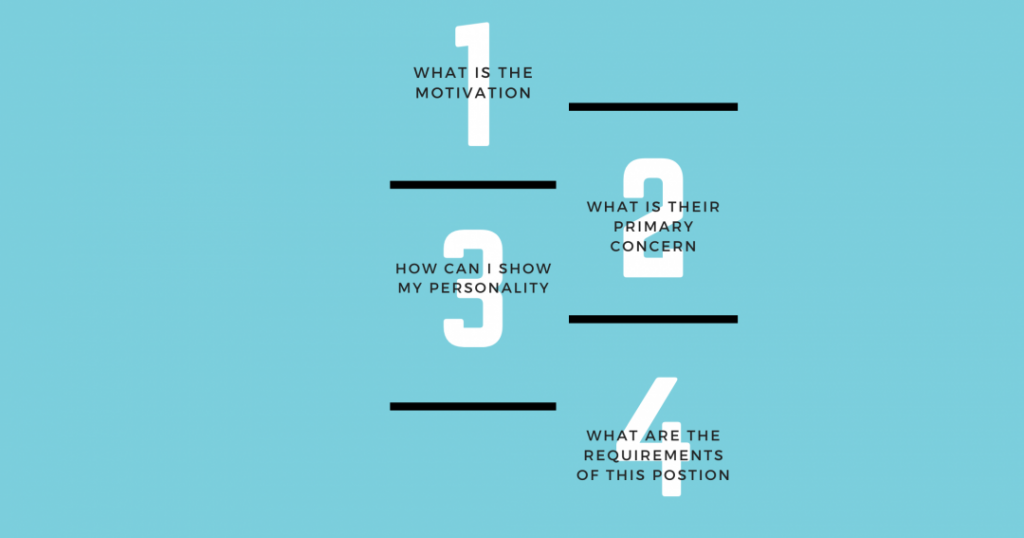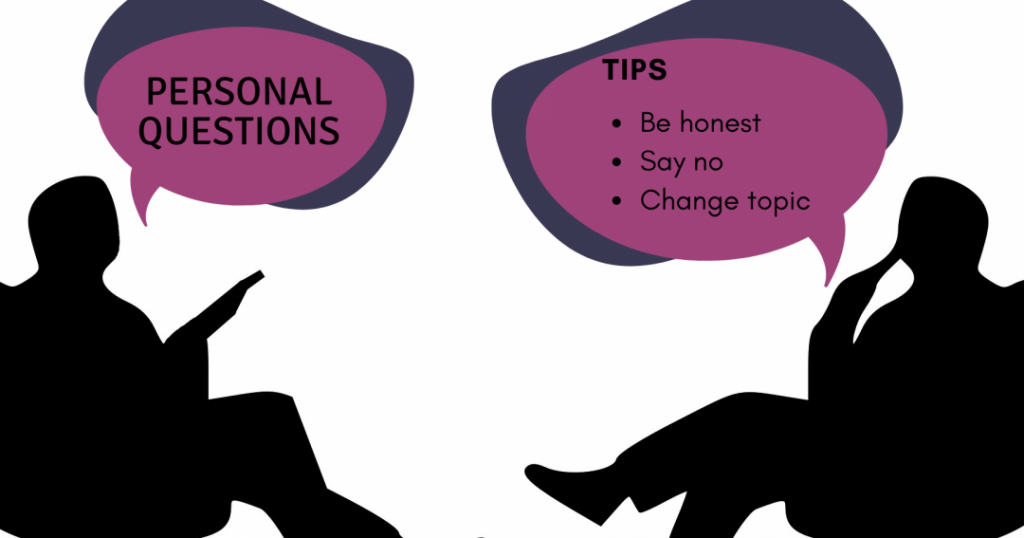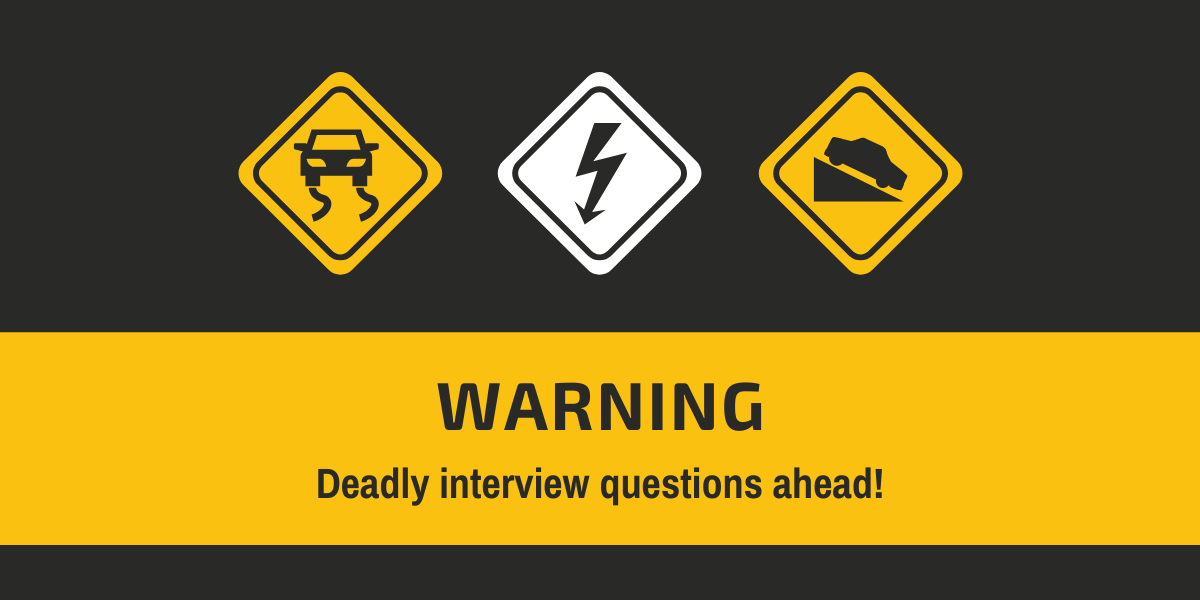Recently, the CBS TV series Why women kill rose to prominence. Three women from different eras are catapulted into unexpected situations in their seemingly perfect lives. Rejecting being trapped in their somewhat banal lives, they fought back and beat the challenges all on their own.
These unexpected situations can arise in job interviews as well. Imagine that you have prepared yourself for your dream position, sought out all relevant information about the company and the role, dressed correctly and equipped yourself with competitive professional knowledge and experience. All of a sudden, an unexpected question comes up and shuts your brain down. That is the moment you realise that you wasted this opportunity not having anticipated the rogue questions.
To help you find a way to survive the interview, we’ve gathered some weird questions that might make your head rear during the interview. They are divided into four major categories —personal questions, decision making questions, brainteaser question, and controversial questions.
A Few Strategies For Tackling Unexpected Interview Questions
Nowadays, the internet knows everything, so much so that HR managers wreck their brains to come up with creative questions to test their candidates. That is how these weird and bizarre questions appear in the interview. Luckily, there is no such thing as a right answer to those questions. They always design the interview questions based on who you are, why you’re here, what makes you the right person for this position, and what you can offer them.
A few things to consider before responding to any question:
- What is the motivation behind it?
- What is their primary concern?
- How can I show my personality when answering this question and apply that to the requirements of this position?
It can’t hurt to read some articles about unusual questions, you may not see exactly the same question, but at least you’ll know some examples and the core strategies behind them so that you won’t panic.

Category One: Personal Questions
Some HR managers would ask you some personal questions that seemingly have nothing to do with the profession. Instead of knowing your personal skills, they want to figure out your personality to see if you are going to fit into the team.
Some examples of questions are: “Why did you choose this outfit for the interview?”; “Who is your best friend and why?”; “What is your favourite colour and why?”; “What would you think of when you see the colour green?”
When you are facing those sorts of questions, the only tip is to be as honest as possible and stay positive. You need to focus on the positive side of the question and show your personality through that. For instance, if your favourite colour is green, you can indicate that you love nature and peace, and you can be a peaceful and stable influence on the team.
Sometimes the interview questions can seem too personal. Some HR managers would drop a very personal question to see how you react to it even if it could cross the line. Don´t rule out possible cultural issues: some questions may be taboo where you are from but perfectly acceptable elsewhere. These questions include: “what is your marriage status?” ,”do you have a partner?”
Your answers to these questions are purely at your own discretion.
The advantage of telling the truth is that before taking the job offer, you need to know if this is a company that will accept you as who you are, and that you will be comfortable working here. But if you decline to answer the question, it may also be appropriate because it requires courage to do so. You may also need to say “no” in your work life. Alternatively, you can approach these questions diplomatically by circling around the question e.g. a response like: “How about we focus on the career path and you tell me more about the company?”.

Category Two: Decision Making Questions
Many positions require excellent decision-making skills, for instance, management-related jobs. Thus, you have to find the optimum solution even under high pressure. To answer those questions, you need to demonstrate that you can make decisions logically.
Example question: “If you receive 1000 emails a day, and you only have time to answer 100 emails, how would you choose between them?”
To answer this question, you need to justify your strategy. You can do this by answering the following:
- How do you define the important emails in this case and why?
- How do you filter them?
- How do you categorise the emails and why?
- How do you deal with the emails you do not reply to today?
A good answer could be: “since I can only answer 10% emails, I would only look at the emails that are directly sent to me. After that, based on the senders, I will reply to the emails from the current project’s co-workers, followed by my boss. I can simply go through the subjects and then reply to them accordingly. I would then put the rest of the emails into a separate folder. Having replied to the filtered emails above, I would go through the subjects of those unread emails to see if there are some crucial emails left behind.”
With this question, HR managers want to examine your logical decision-making process and how you deal with complex tasks. They want to see your organisational style and your ability to deal with high-pressure situations.

Category Three: Brainteaser Interview Questions
If you get to the final rounds, especially for some technical or analytical positions, you may get some brainteaser questions. For this sort of question, you are not always expected to give the right answer, but to show your problem-solving capability, positive attitude, logical thinking and some creativity.
“What if the earth orbits the moon, how many times will you see the moon from the earth per month?”
This question came up during a legal consulting position interview for a UAV (Unmanned Aerial Vehicle) company. At that time, UAV was an entirely new field, meaning there would be many unknown adventures and challenges ahead. The company was trying to find a knowledgeable candidate to deal with unanticipated issues. Failure to offer an answer to this question meant that the candidate was unsuccessful and unable to offer the necessary analytical skills.
To answer the question, you have to attempt some fairly complex mathematics. You need to get all the parameters that you need to answer these questions and then figure it out in reverse. The HR managers do not expect you to know the exact facts and figures about this astronomy question. Still, you should at least be able to answer this question by asking, “may I have some basic facts and figures on the earth’s rotation? Then I could solve this question based on those facts.” This indicates that you are using sound logical reasoning to answer the question and, consequently, not offering a nonsensical answer that is not based on fact.
Bear in mind that if you don’t know the answer off the top of your head, don’t panic and stay calm. Then you can try to ascertain more information about this question. The important thing is not necessarily the answer, but how you reach your answer. What interests them is your method and, even more, the logic behind it.

Category Four: Controversial Questions—How You React When You Are Challenged
“Why isn’t your GPA higher?”
“What do people often criticize about you?”
“Why were you fired?”
These interview questions are like hot potatoes thrown into your bare hands during the interview. But luckily, again there is no one correct answer. HR managers are trying to observe your reaction to being challenged and under pressure.
The best strategy to answer these questions is always to be honest. HR managers ask these questions not to judge you, but to know if you can take responsibility for your actions and if you have learned from your previous experiences or mistakes.
No one is perfect! Don’t blame others or over-explain why you made a mistake. The best strategy is to keep it simple and focus on what you have done to improve yourself and what you learned from it.

Weird Questions Are Coming, But Don´t Worry
To survive weird questions, you need to equip yourself with a positive problem-solving attitude and skills. Also, put yourself in others’ shoes before you answer the question: what does the interviewer want to learn with this question?
No matter what happens in the interview, the real aim of most interview questions is to find out one of these things:
- Why do you want to join this company?
- What can you offer us?
- What kind of person are you?
- Why should we choose you instead of others?
Having seen your CV, HR managers want to know more about your personality and to see how you react to facing difficult situations. In this case, there are some basic strategies for you to follow:
- Don’t panic when the unexpected questions come up.
- Ask questions instead of freezing up and win a bit of time to think.
- Reflect on the purpose of this question.
- Don’t give an answer that is too simple.
- Show your creativity and logical thinking when approaching a question.
- Above all: tell the truth.
By Mia Zhang




